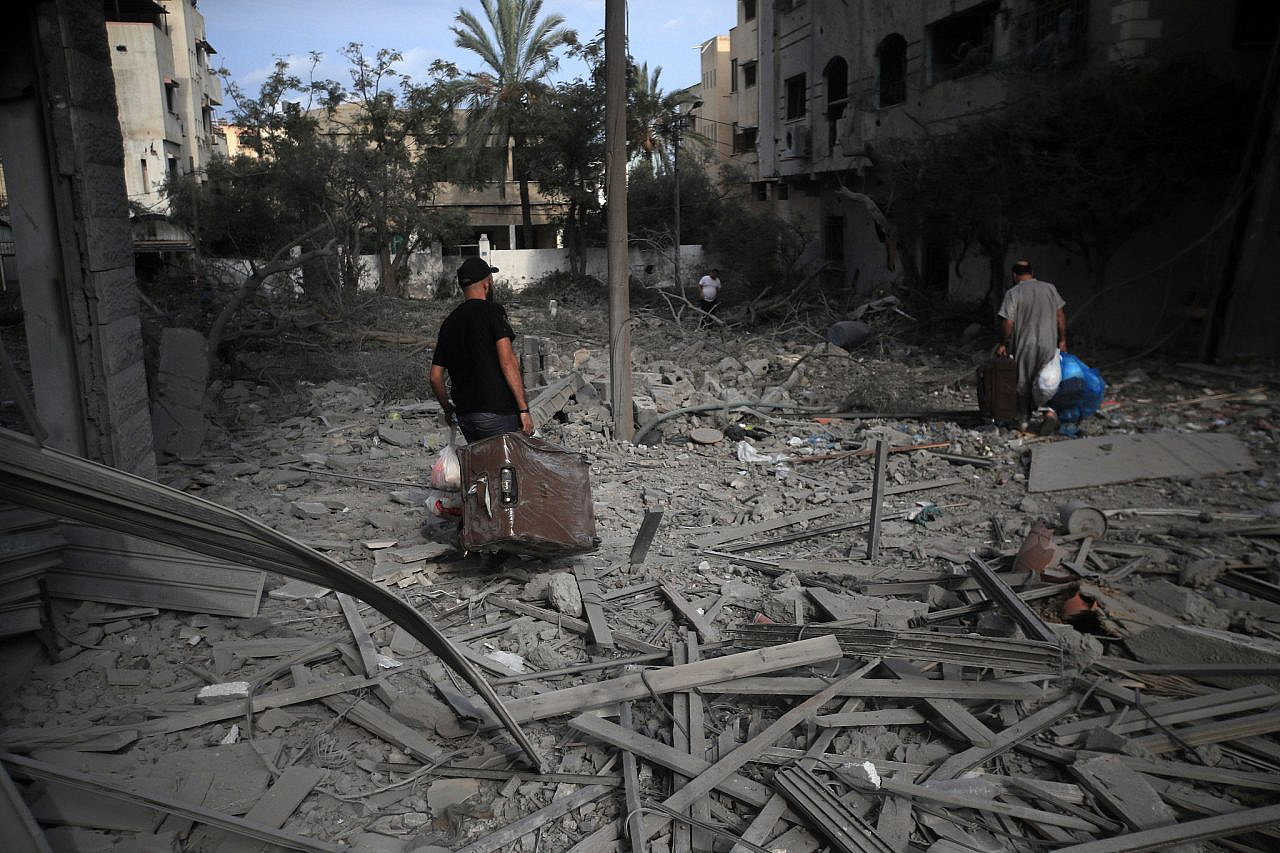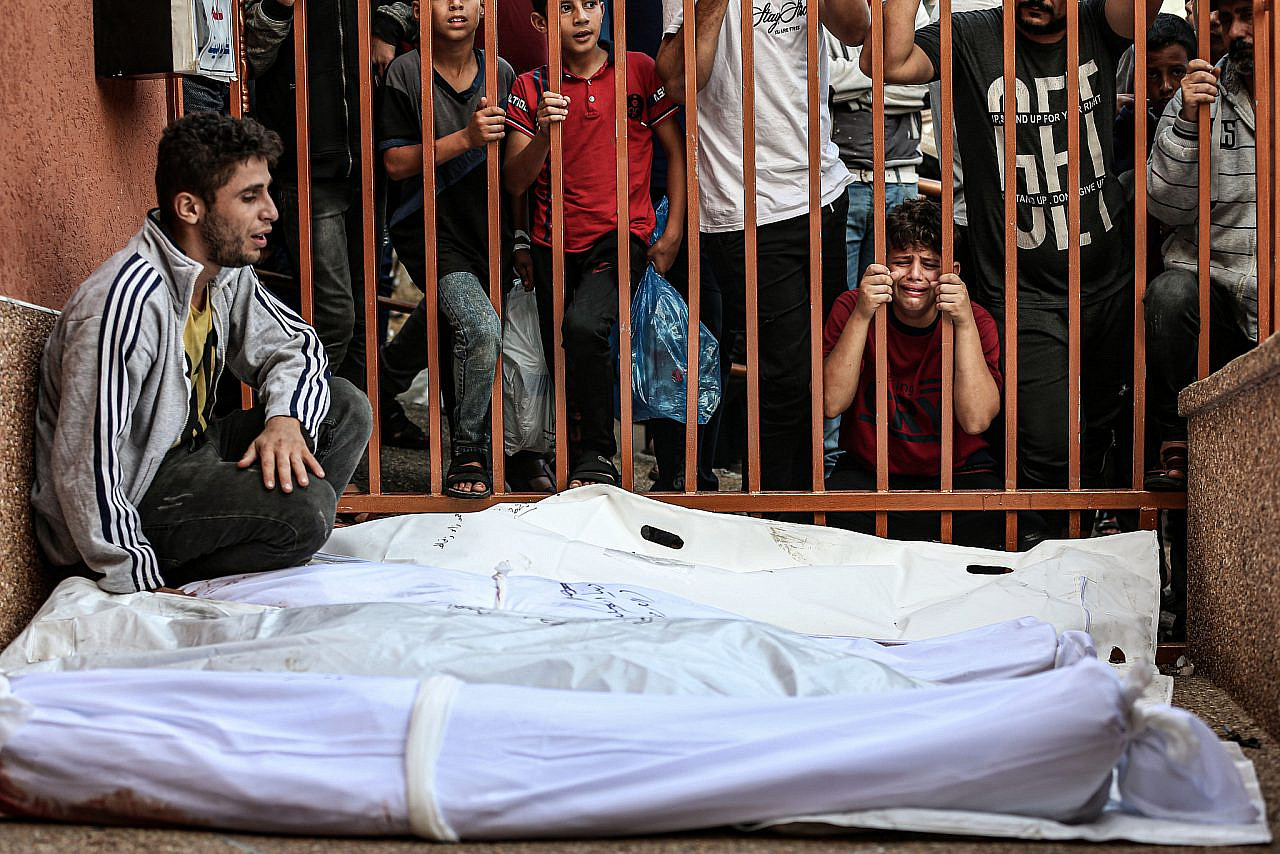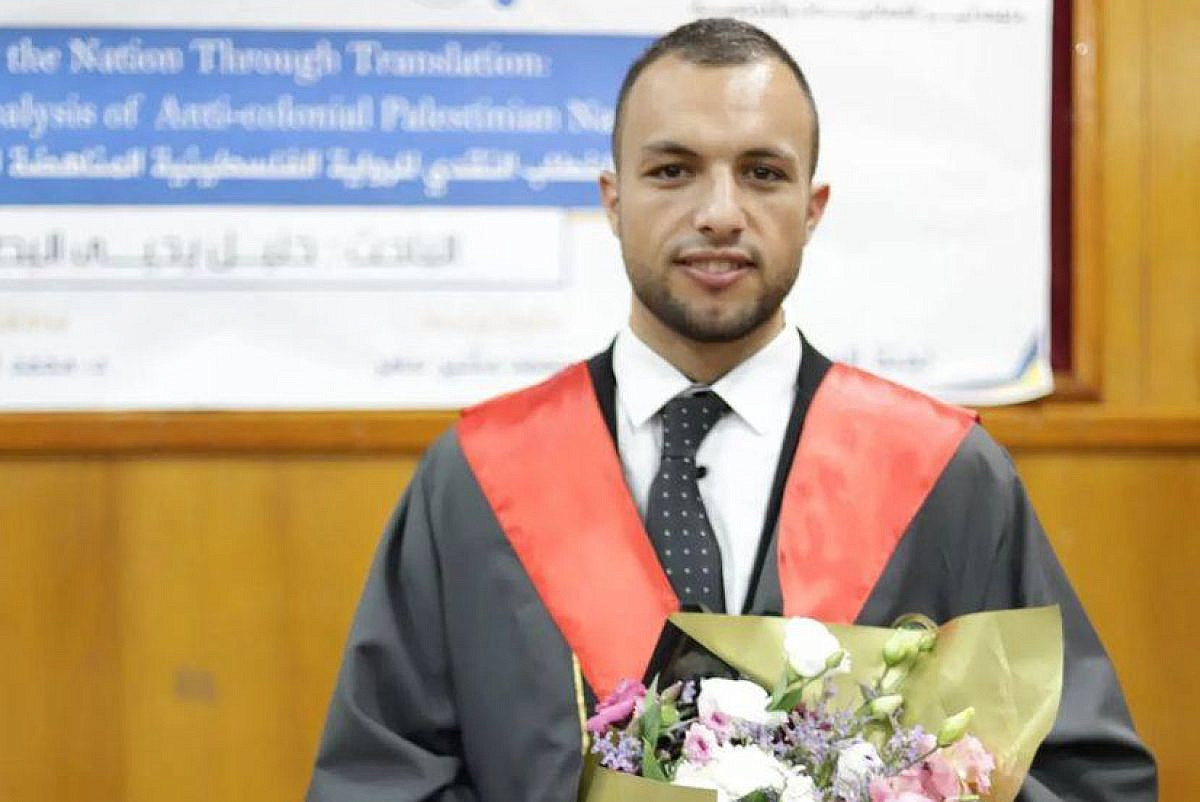On Monday, Oct. 30, Khalil Abu Yahia, a past contributor to +972, was killed by an Israeli airstrike on the Gaza Strip. Below is a tribute to Khalil from his friend Sahar Vardi, an Israeli human rights and anti-militarism activist and occasional +972 contributor.
Khalil.
I scroll up through our messages. Our last normal correspondence is from Sept. 27, when we were talking about his grade point average. Or rather, how to convert his GPA from an academic institution in Gaza to an academic institution in the U.K. or United States. I sent him some ideas for scholarships. He said that even if he couldn’t find one abroad, he might find something online that would allow him to write his PhD in literature inside Gaza.
The next correspondence is already from after. After that Saturday, Oct. 7.
We messaged a bit. Where is he? The Israeli army ordered them to evacuate from their neighborhood in Gaza City to the adjacent neighborhood of Al-Rimal, so he and his neighbors evacuated – but thankfully not to Al-Rimal, which was bombed two hours later. His neighborhood was, too. He told me his house was blown up. All of his memories of his father. “The tears won’t stop falling,” he said.

It continued like this: once every few days we would write to one another; once every few days he would update. Update that he is alive. Update on who else had died. And somehow, almost every time, he would sign off with how important it is to him that I know that this hasn’t changed what he believes, hasn’t shaken his desire for another world — a better, more equal one. “I wouldn’t want this to happen to anyone,” he wrote.
As with other friends in Gaza, I didn’t know what to write. Four days into this nightmare, I told him exactly that: that I don’t know what to write, except that I’m thinking about him, and that I wish I could do more. “It’s enough for me that you asked about me,” he replied. And I cried. The first time in that terrible week that I managed to cry. For everything.
I cried for all the fear, for all the helplessness, for all the photos of the people who were murdered and kidnapped, and the horror on their faces on Oct. 7. I cried for the horror of what was to come, his home that was bombed, the worry. I cried for the parallel worlds that I felt I was seeing and that I wasn’t able to bridge, until I spoke to him.
How lucky that he exists, I wrote to a mutual friend. How lucky.
The next day, he sent another update: the house that he was staying in, belonging to his relatives, had been blown up. He counted four dead family members and five dead neighbors.

He called just over a week ago. We tried to speak but didn’t manage to — I was in the middle of something, and afterwards he wasn’t available. “We can speak later,” he wrote.
The final message is from two days later. Oct. 23. Another airstrike on his family’s home. More relatives killed. “I’m so sorry to hear about your family members,” I wrote to him. “More and more people, names, stories, just adding to the list of pain that continues to grow.” “Hence, our role as human rights activists and freedom fighters,” he replied.
A few years ago, he came to Jerusalem for surgery and needed blood donors. After that, some of my blood also flowed in his veins. There is a part of me that wants to write that on the day Khalil was killed, my blood was also spilled in Gaza. But that’s a lie.
I am safe in my home, in front of my computer that is connected to the internet, with food in the fridge and water running through the pipes, and four walls that are all still standing. And he’s not. Him, his wife, their two young daughters. All dead.
Most read on +972
He will no longer submit his PhD application — which, he told me during one of these conversations, he’d have worked on, even during all of this, if he’d had a little more electricity. He will no longer respond to me with an impossible combination of horror and optimism. He will no longer tell me how much he is waiting to meet me one day, when all this is over. The only thing he is still able to do is make me cry.
And maybe one other thing: to remind us that this is why we are here, the human rights activists and freedom fighters. To struggle. To keep going. So that this won’t happen again to anyone.
This article originally appeared in “The Landline,” +972’s weekly newsletter. Subscribe here.




